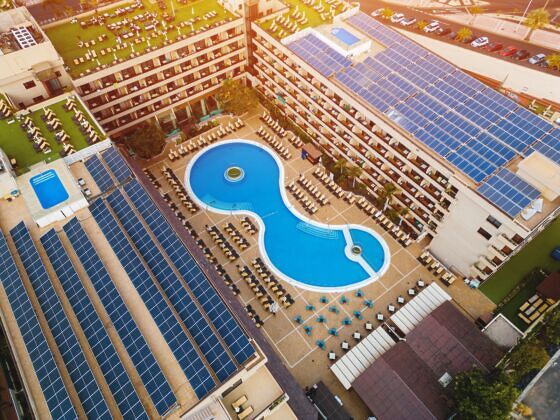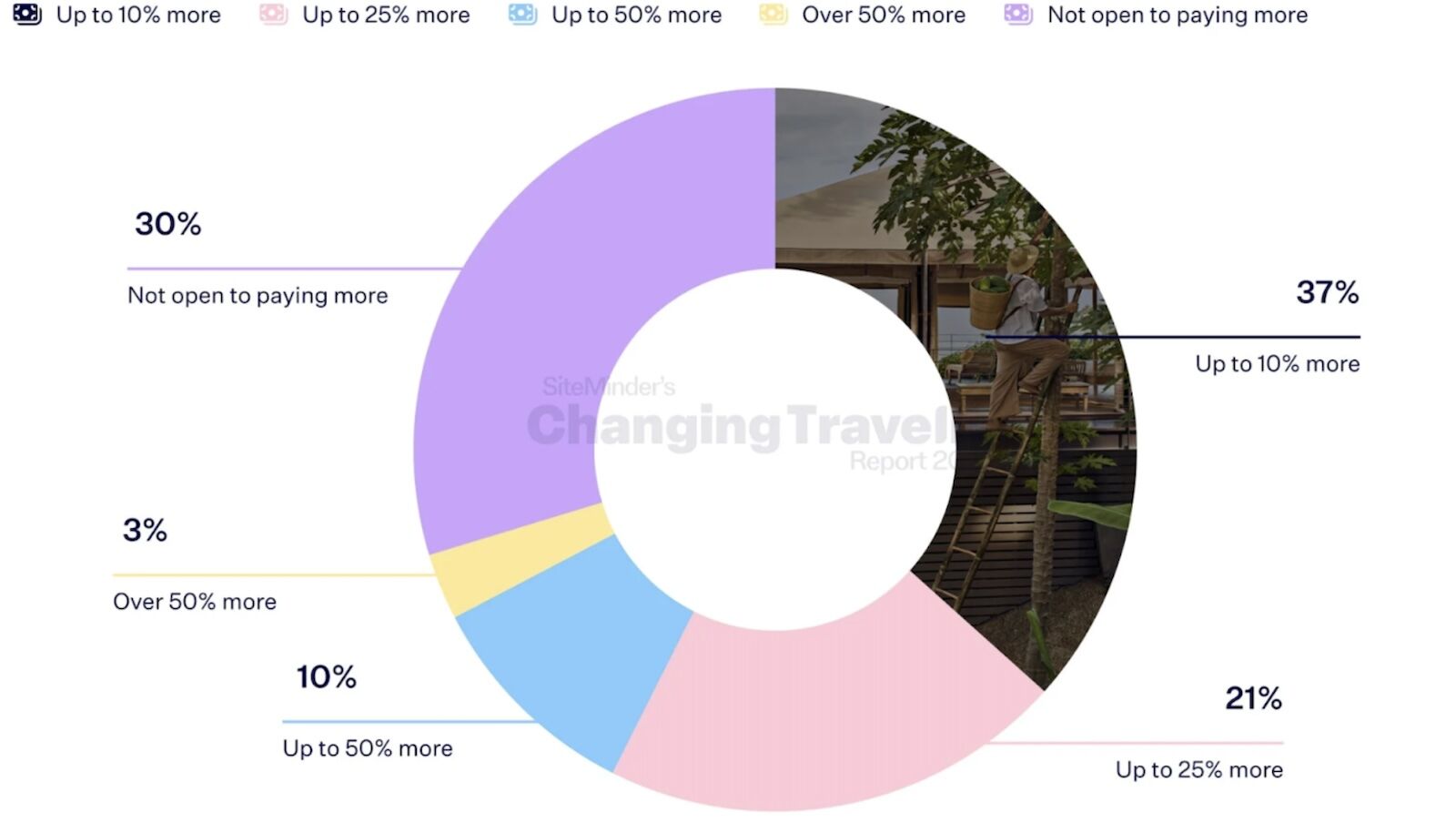Gauging the preferences of all who travel is a tall task, but in recent years one trend has emerged as a growing priority for travelers – sustainability. Some 75 percent say they intend to consider the impact of their travel decisions in the next year, and one of the primary ways they’re considering that impact is through where they stay. According to a new report from SiteMinder, 37 percent of travelers are open to paying 37 percent more to stay in certified “green” accommodations. The report also found that 21 percent of travelers would pay up to 25 percent more, while 30 percent wouldn’t pay for any sustainability upcharge.


How Much Are You Willing to Pay for 'Green' Accommodations? Hotels May Now Have the Answer
Globally, it’s clear that eco-friendly accommodation is now taking centre stage, with 70 percent of travellers today willing to pay more for sustainable lodging,” Maria Cricchiola, SiteMinder’s Director of Brand Communications and PR, told Matador via email. In particular, Cricchiola notes, travelers “increasingly prioritize accommodations that demonstrate responsible construction practices and effective waste management.”
Hospitality companies are responding in kind. Dozens of hotel operators worldwide have attained B-Corp certification as a means to certify their efforts toward responsible business practices.
How hotels are responding to consumer sustainability preferences

Graph courtesy of SiteMinder
The Populus concept was born of more than a shot in the dark. Tourism is responsible for about 8 percent of global carbon emissions, according to data from Sustainable Travel International. Issues such as overtourism and wildlife habitat degradation are increasingly covered by travel and mainstream media outlets, and an increasing number of tour operators and travel companies are focused on being part of the solution – promoting conservation, highlighting local businesses – in order to attract business. Booking.com found that 75 percent want more responsible travel options and plan to utilize them going forward.
“In August 2024, we surveyed more than 12,000 travelers in 14 of the world’s largest tourist markets (Australia, Canada, China, France, Germany, India, Indonesia, Italy, Mexico, Singapore, Spain, Thailand, UK and USA), asking 25 accommodation-specific questions,” Cricchiola says.
The resulting data was compiled into SiteMinder’s report. Notably, input from hotels themselves was not gathered so as to produce data specifically from the travelers spending money, rather than the businesses profiting as a result. The hotels themselves, then, must respond through action. One property doing so is the recently-opened Populus, in Denver’s Golden Triangle neighborhood. The property is the first to claim it’s operations are “carbon-positive,” meaning more carbon is captured from the atmosphere by the hotel’s efforts, or prevented from reaching it in the first place, than the hotel emits. Though many hotels have pursued sustainability accreditation through third-party auditors, Populus is the first to take efforts to such a complete scope, with its own rooftop solar garden, industrial food composter, and tree-planting initiative, among other efforts. The hotel also shuns dedicated parking for cars, instead encouraging travelers to arrive via transit, bike, or other means.
“We are continuously surprised by our guests’ interest in sustainability, often asking our front desk associates further on the reclaimed wood, sustainable design features, reception desk, and more, immediately upon arrival, further emphasizing that sustainability continues to grow as a demand for consumers, including the travel industry,” Thomas Hudson, Environmental Experience Manager at Populus, told Matador.
Hudson notes that despite this, the customers the hotel has attracted since its October launch choose the hotel specifically for its green credentials.
“[O]ur developer Urban Villages continues to see the demand from consumers seeking more sustainable options when traveling, which furthered their passion to build one of the most sustainable buildings in the country,” Hudson says.

Populus hotel and its onsite green initiatives. Graphic courtesy Studio Gang
This fits well with the SiteMinder report. This data, then, notes that the hotel industry, particularly boutiques and more upscale properties, are homing in on how much more they can charge to support their green efforts. Certainly, the positive marketing and reputational boost gained through broadcasting a sustainability ethos is part of the plan – but Populus is proof that it’s possible to get much deeper than greenwashing.
“According to Deloitte, demand for green products is growing fast with over half of US consumers already changing their behaviors to help address climate change, and 34% paying more for sustainable products. We are seeing this firsthand through both our room bookings and our restaurants. With Pasque and Stellar Jay offering sustainable, nature-based dining, including locally sourced meats and produce, visitors to the restaurants are willing to spend the extra dollars to know that not only is their food coming from a responsibly sourced farm, but their food waste is also being turned into compost to be shared with local farmers.”
The SiteMinder data combined with the rise in demand for “responsible travel” suggests that hotel operators can successfully charge 10 to 25 percent more for a room if they’ve met consumer sustainability demands. When booking travel in 2025 and beyond, expect to see more properties with similar efforts – and be prepared to pay for it.